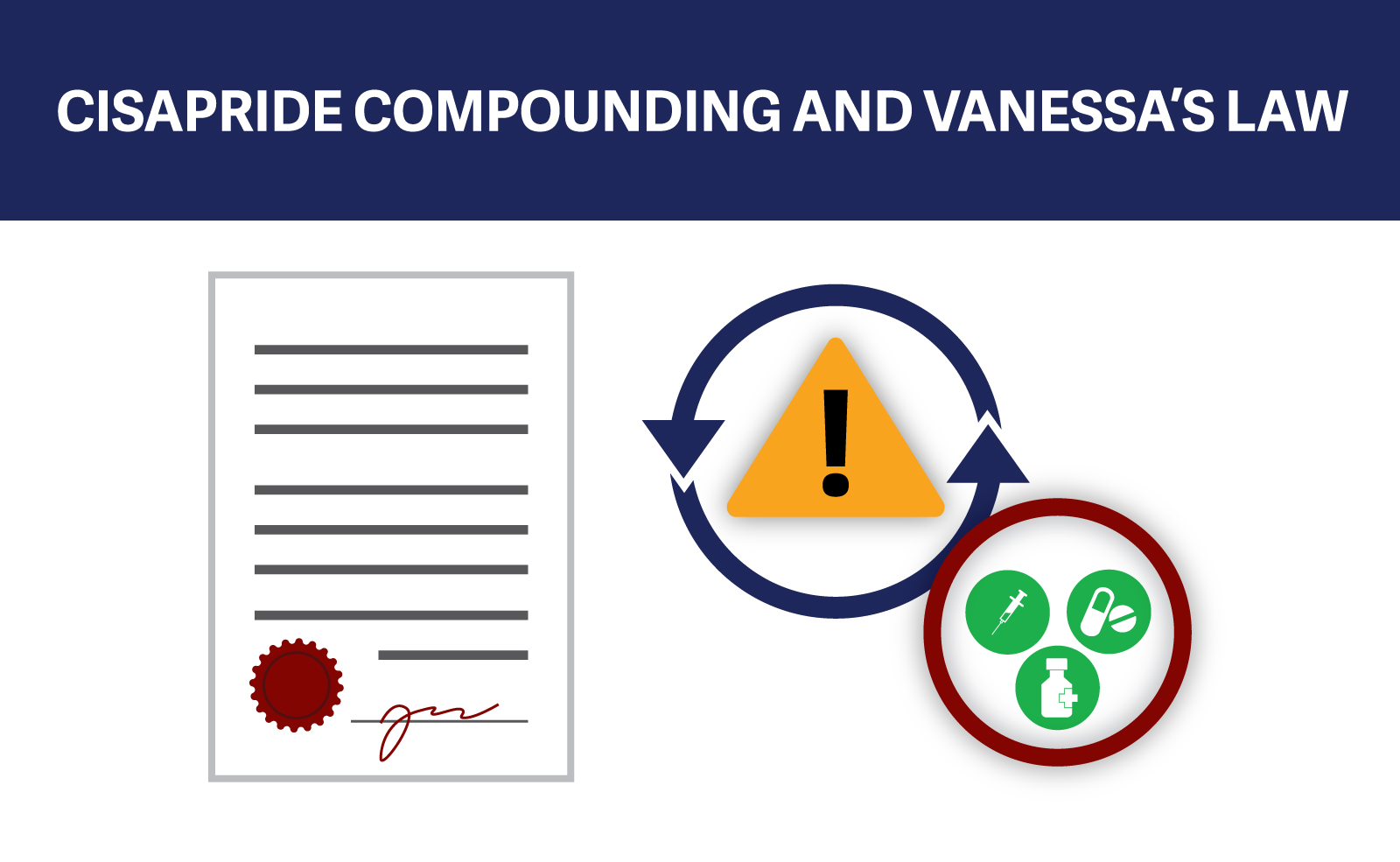Cisapride Compounding and Vanessa’s Law
Earlier this year, Health Canada discovered that the Active Pharmaceutical Ingredient ‘Cisapride’ is currently being imported into Canada by one importer, with other importers hoping to do the same.
Cisapride is a prescription drug originally indicated for the treatment of gastroparesis, intestinal pseudo-obstruction, and gastroesophageal reflux disease. The drug was frequently associated with serious cardiac arrhythmias and sudden cardiac deaths between its introduction in 1990 and February 2000, when it was found responsible for the death of 15-year old Vanessa Young, who died of a heart attack while using the drug to treat a stomach ailment.
The incident, along with 80 others like it, spurred the removal of cisapride from the market, followed by the introduction of the Protecting Canadians from Unsafe Drugs Act, also known as Vanessa’s Law. The act, which received royal assent in November 2014, introduced amendments to the Food and Drugs Act intended to improve Health Canada’s ability to regulate a drug more efficiently and effectively throughout its life cycle, beginning with the pre-market application for an authorization to sell the drug to post-market follow-up.
Prescription drugs containing Cisapride no longer have valid Drug Identification Numbers, and are therefore no longer sold in Canada. Following Vanessa Young’s Death in 2000, Health Canada issued a Dear Health Care Professional letter providing more detail on the reasons behind the decision to withdraw the drug.
However, because Health Canada’s regulatory framework does not cover importation for the purposes of compounding; and the API is being imported from a site that is compliant with Health Canada’s Standards for Good Manufacturing Practices, the importation of Cisapride cannot be stopped.
WarningThe College of Pharmacists of BC, along with the National Association of Pharmacy Regulatory Authorities and Health Canada would like to remind patients and registrants of the risks and dangers associated with Cisapride. In addition to sudden cardiac death, Cisapride has been associated with ventricular tachycardia, torsades de pointes, ventricular fibrillation and other serious cardiac arrhythmias. Patients with severe gastrointestinal motility disorders, who are refractory to alternative therapeutic modalities, may be eligible for access to Cisapride through Health Canada’s Special Access Programme. In these cases the prescribing physician will be responsible for determining if the benefits of the treatment outweigh the risk of serious cardiac adverse events. |

 Share
Share



